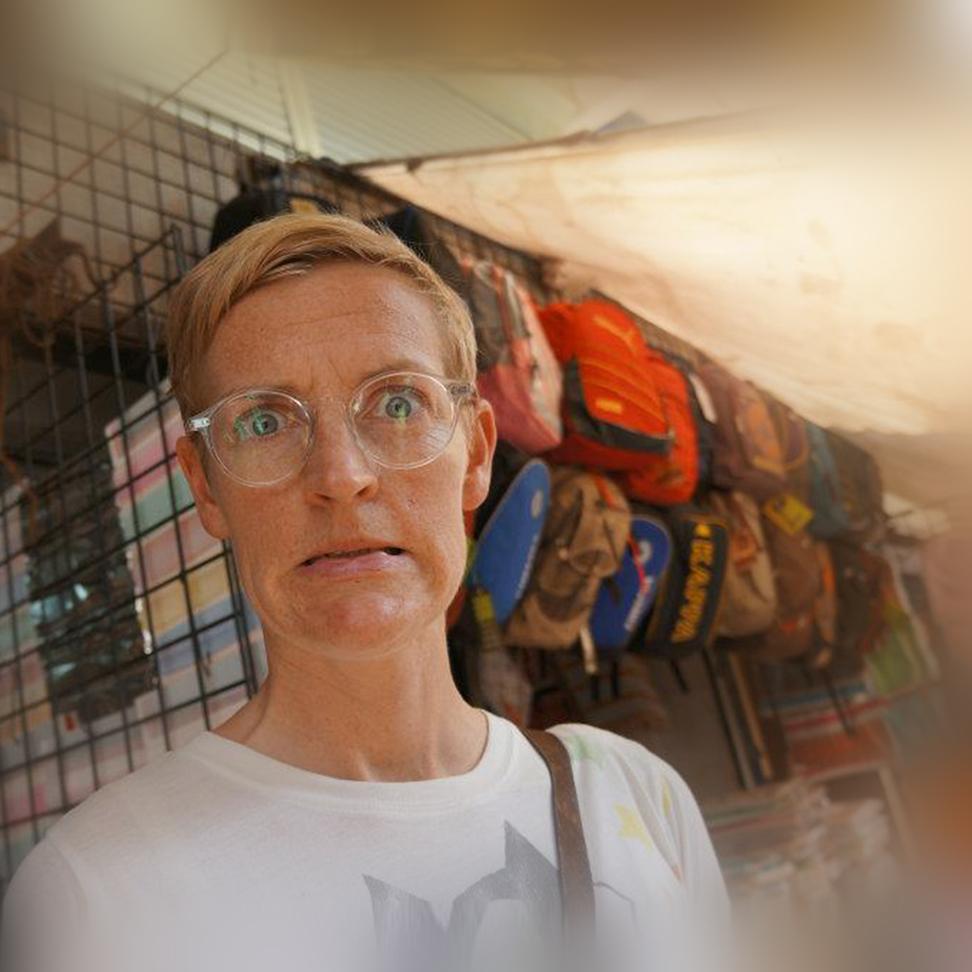Holidays. They’re great. It doesn’t matter if you’re crossing county borders or country borders – what makes a holiday a holiday is having a break from your norm.
Of course, the more that’s different, the bigger the break is, and the one thing that can really hammer home your alien status is being surrounded by a foreign language. Not understanding anyone is saying is at best amusing, but at worst really quite frustrating.
So how can you turn frustration into friendly banter? Easy: download a few language apps and get practising!
But why learn another language?
Can you say, ‘Not so spicy, please!’ in Thai?
Speak English? Well that’ll do for much of the time, but committing yourself to learn a few phrases in the local language can do wonders for you, your trip and of course, those you meet.
There’s no better way to meet locals and show that you’re more than just a fly-by tourist than speaking their language. Don’t worry about making a hash of it; trying to get your tongue round ‘rød grød med fløde’ will bring a smile to any Danes lips.
Doing your best to express yourself in their mother tongue is at worst laughed at, and at best, well, it’s completely understood. It’s an open and – with the right language apps – an easy way to embrace another culture, and to show that you’re willing and able to make a fool out of yourself in the name of communication. Show your eyes, smile and go for it.
Language apps to help you on your way
Order your festive drinks in the local lingo
Aside from practice, practice, practice, you’ll need something to get you started. We’ve gathered our seven favourite free language apps below (all of them are compatible on both iOS and Android).
HiNative
HiNative is essentially a Q&A app: ask natives questions about wording, pronunciation and basically anything you want, and get answers. In return, you answer their questions. It’s an incredibly simple yet effective concept (100+ languages).
memrise
memrise is a language learning app that manages to make learning a lot of fun. Thanks to gamification, the app helps you memorise (geddit?) new words and phrases, and even adapts to your own learning style (100+ languages).
duolingo
Another app that uses gamification, duolingo is full of bite-sized lessons and games that teach you how to read, write, listen and speak a language. Start with basic verbs, phrases and sentences and learn new words every day (27 languages, including Klingon).
Bravolol
Do they know what they’re eating? Maybe not
Bravolol is series of simple language apps that helps you learn a language through new phrases and words. You can also record yourself so you can work on your pronunciation (and cringe). Simple, but very useful for the basics (18 languages).
busuu
busuu provides full courses that are split into 10 minute lessons each day, and who doesn’t have time for that? Courses are run by natives, and include speaking and writing lessons, grammar tips, memory practices and much more (12 languages).
mondly
With over 500 bite-sized lessons and 14 conversation modules, mondly lets you play your way to a new language. By putting you in everyday scenarios, you practice phrases and words, you’ll actually use (33 languages).
Babbel
Babbel, like the others, is an easy-to-use app that uses everyday language and fun scenarios to help language stick. With short lessons to go through every day, you’ll be forming sentences in no time (14 languages).
Tips for learning a new language
I’ll have the Salle A L’Etage, please
Be honest with yourself – you’re probably not going to master whatever language it is you want to learn. And that’s OK. Keep our six tips in mind, and you’ll be fine.
Don’t set out to become fluent
Try to set a few essential phrases you know will come in handy. The usual hellos, goodbyes and pleases and thank yous go far, and most of the language apps above have common phrases to help you on your way.
Set small goals
Don’t expect to learn all your phrases in a week. Start practicing a few months before you travel, and try one phrase or word a week. Any more and you might put yourself off.
Practice makes perfect
Barter your way to a deal in Goa
We know, we know, we sound like your mother, but it’s true. Do it on the bus, in the park, at work, on the toilet – whenever you have a moment, practice (with the language apps we’ve listed above, it’s really very easy to do).
Go native
The best way to learn a language is talk to a native. If you know someone from the country you’re going to, give them a laugh and try to surprise them with a few words. If you don’t know anyone, check out the links above; a few of them will put you directly in touch with a native.
YouTube your way
If you’re in doubt about pronunciation, search on YouTube – there are lots of channels that can help specifically with pronunciation. Here’s one for Spanish, Chinese (Mandarin), Thai, Italian and French.
Sing a song
Another little tip for pronunciation is to find a song in the language you’re trying to learn, Google your way to the lyrics, and then listen to the song as you read the lyrics. It’ll help you associate letters and accents with the pronunciation – and you’ll be down with the local music.
Learning a new language for your travels doesn’t mean learning all of it, and it certainly doesn’t mean having to learn the grammatical complexities first. Just grab yourself a language app, take five minutes a day before your trip, and take the plunge when you arrive. Talk to strangers, meet locals, embarrass yourself and laugh with your new friends.


